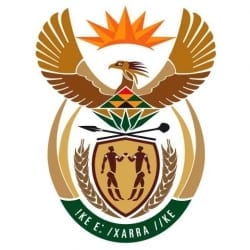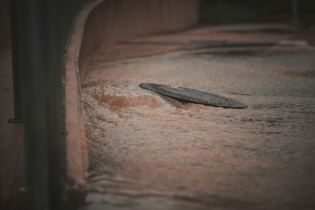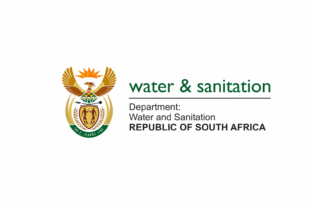At the opening ceremony of the WISA2012 conference, the Director General of the Department of Water Affairs, Maxwell Sirenya provided a comprehensive insight into the department’s goals. Here is a brief introduction to the DG’s speech entitled “Vision for the Water Sector”.
The Department of Water Affairs (DWA) is a corporate and patron member of WISA and many of our officials are also individual members. About 200 officials from DWA will participate in the Conference this week.WISA is one of a number of voluntary organisations in South Africa which is considered an integral part of the water sector and with who I want to strengthen our partnership in the interest of all the people of our country. The DWA needs the support of organisations like WISA to face the challenge in water in the future.
WISA was founded in 1987 as the successor of the Institute of Water Pollution Control which was originally founded in 1937. The objectives of the Institute are the promotion of and application of scientific and engineering knowledge and management skills in the planning, design, control, operation, maintenance, investigation, research and education within the natural and controlled water cycle. The specialist divisions of WISA include specialist areas like Anaerobic and Sludge Processes, Membrane Technology, Mine Water, Oxidation and Disinfection, Small Wastewater Treatment Works and Water Distribution. WISA is therefore well placed to support the Department of Water Affairs, other government departments, local government and water institutions in the water sector in these specialist areas. Other similar professional organisations, which are important for the water sector are organisations like SANCOLD – the South African National Committee on Large Dams, SANCIAHS – the South African National Committee of the International Association of Hydrological Sciences, the South African National Committee on Irrigation and Drainage (SANCID), the Institute of Civil Engineers (SAICE), the South African Federation of Civil Engineering Contractors (SAFCEC), Consulting Engineers South Africa (CESA) and the Engineering Council of South Africa (ECSA) and the South African Society for Aquatic Scientists (SASQS). SANCOLD – The South African National Committee on Large Dams, for example, plays an important role with respect to the promotion of dam engineering in South Africa. SANCOLD plays a coordinating role with respect to the development of standards and guidelines for dam engineering in South Africa, which is used every day by DWA in the design of dams and the regulation of dam safety. I would like to encourage WISA to adopt a similar role with respect to the development of effluent standards and standards for water treatment in South Africa. The South African Institution of Civil Engineering (SAICE), for example, is playing an important role to ensure that retired engineers are utilised in the water sector in municipalities. I am encouraged to see that capacity building, education and training in the water sector is one of the themes for discussion this week and I know that I can rely on WISA to continue to play a role in this regard.
The themes of the 2012 WISA Conference include a wide range of very technical water issues which are facing South Africa today, including Mine Water, Industrial Water and Effluent, Potable Water Treatment, Membrane Technology, Environmental and Aquatic Ecosystems, Wastewater Treatment, Energy and Water, Water Distribution, Water Quality, Water Conservation and Demand Management, Sludge Management and Disposal, Analytical Models, Urban Drainage for Wastewater and Stormwater and Ground Water.
A number of less technical but equally important issues are also addressed like Capacity Building and Training, Governance and Institutional Affairs, Infrastructure and Asset Management, Community Water Supply and Sanitation, Health and Safety and Integrated Water Resource Management. This is therefore indeed a very multi disciplinary conference with participation not only from scientists, engineers, technologists and technicians but also from all the other disciplines that are needed for integrated water resource and water services management. The Department of Water Affairs and the Water Sector of South Africa needs the expertise of organisations like WISA. I would like to update you in my address of the latest developments in DWA in some of these areas so that we can join hands and go forward together.The topics covered in the DG’s address included: • National Water Resources Strategy
• Regional Bulk Infrastructure Grant (RBIG) Programme
• The Role of Catchment Management Agencies
• Realignment of the water sector
• Managing national water resources infrastructure
• Managing local water infrastructure (water user associations)
• Acid Mine Drainage
• Desalination and recycling strategies
• Groundwater
• Energy and Renewable Energy
• Water Meters
• Water Ecosystems
• Water Use Licences
• Water Research
• New dam safety regulations
• The Development of Water Infrastructure
• Blue Drop and Green Drop Awards







